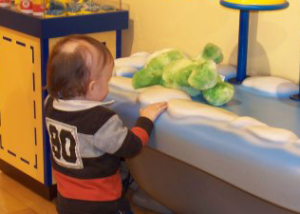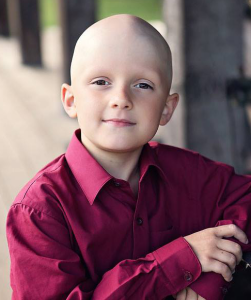Alopecia Areata, also commonly known as AA, is an autoimmune skin disease that causes hair loss in patches. Alopecia Areata occurs when a person’s immune system attacks hair follicles; this causes the hair to fall out and prevents new hair from growing.
Symptoms
The main, and sometimes only, symptom of Alopecia Areata hair loss in round patches. AA can affect any area on the body, but most commonly affects the scalp. For some people, total scalp hair loss (called alopecia totalis) or complete body hair loss (called alopecia universalis) occurs. In some cases, AA may also cause small dents in nails. Although AA is not life-threatening nor painful, it still causes anxiety and sometimes even depression for those who have it.
Who Can Get It
Both males and females can get Alopecia Areata and it can start at any age. Anyone can develop Alopecia Areata, but chances of having it are increased if you have a relative who has had AA. According to the National Alopecia Areata Foundation, “over 6.6 million people in the United States and 147 million worldwide have, had, or will develop Alopecia Areata at some point in their lives”[1]. Some can have AA for a few months while for others it could last for years. For about 10% of people with this condition, AA results in permanent hair loss or reoccurring hair loss.

Treatment
Currently, there is no cure for AA, however, there are many different treatments that may promote hair re-growth such as Corticosteroid injections, topical Minoxidil, Anthralin ointment, ultraviolet light therapy, and some natural home remedies. Some people may see results from some kind of treatment, while others do not get any results. It is important to note that none of these methods are actually clinically proven to work.
Conclusion
Alopecia Areata is highly unpredictable and there are still a lot of uncertainties about it. More research is needed to help those with this autoimmune disease. If you suspect that you or someone you know might have Alopecia Areata, please consult a doctor for medical advice.


 “I have had Alopecia since I was a baby. First, it was patchy, then I lost all my hair when I was 4. Now I don’t have hair, eyebrows or eyelashes. I sometimes don’t like that I have Alopecia because kids make fun of me and call me weird. I don’t want people to see that I don’t have hair, which is why I wear a skull cap most of the time.”
“I have had Alopecia since I was a baby. First, it was patchy, then I lost all my hair when I was 4. Now I don’t have hair, eyebrows or eyelashes. I sometimes don’t like that I have Alopecia because kids make fun of me and call me weird. I don’t want people to see that I don’t have hair, which is why I wear a skull cap most of the time.”